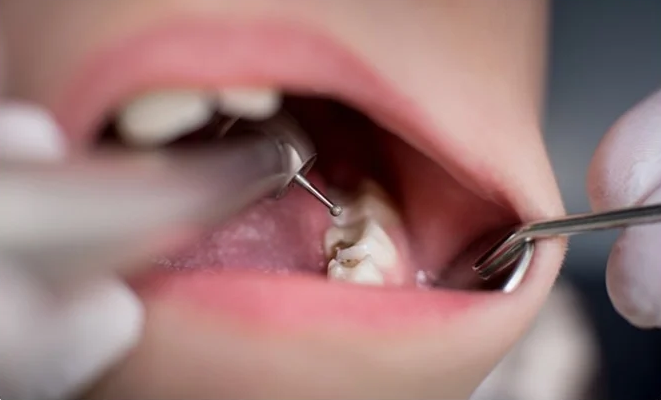Consequences of tooth loss

Not all procedures require anaesthesia and your dentist will apply it only if they see the need to do so. PHOTO / SHUTTERSTOCK
What you need to know:
- The inability to smile, talk, sing, laugh and enjoy a meal may all lead to poor general and mental health.
We tend to think of teeth as individual units, but in fact, they make up a complete system; each helping the other to function well. Think about how the keystone in an arch holds all the other stones or bricks in place. Think of the human dentition as being composed of the anterior teeth (canines and incisors), which are used for cutting and tearing food, and the posterior teeth (premolars and molars) used for grinding and chewing food.
The posterior teeth also support the vertical height of the face and if lost, the face tends to lose height in what is referred to as posterior bite collapse. Unlike implants, removing teeth not only changes the remaining back teeth affecting their spacing and biting function, it also puts pressure on the front teeth, which tend to move or splay forward.
All these changes have implications on normal form appearance and function. They also have ramifications for other facial and jaw structures, which can affect anything from the skin to muscles and jaw joints. Appearance begins to change as the height of the jaw decreases, causing wrinkles and dropping of the corners of the mouth.
Additionally, it can become difficult to eat food since the front teeth where not designed for chewing. There are also the social consequences of losing one’s teeth. The inability to smile, talk, sing, laugh and enjoy a meal may all lead to poor general and mental health. Here are some options for teeth replacement:
1. Dental implants, which are are relatively recent.
2. Removable options or Dentures. Dentures can replace individual or groups of teeth. A fundamental problem with removable prostheses is that for stability, they rest on the teeth and gums tending to cause bone loss through pressure transmitted through the gums. For total teeth replacement whether in the upper or lower jaw, full dentures are the only option.
3. Fixed bridges. These are non-removable prostheses, which are attached to the natural teeth. They act by joining other teeth together with a false tooth or teeth, thus bridging the gap.
Dr Matovu Muhammad, dental surgeon
Send your questions: [email protected]




